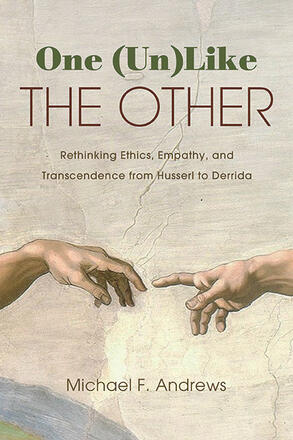
One (Un)Like the Other
Rethinking Ethics, Empathy, and Transcendence from Husserl to Derrida
Alternative formats available from:
Aims to rethink ethics and transcendence in light of the phenomenology of empathy and social ontology.
Description
One (Un)Like the Other responds to the question, "What are the conditions of possibility that make genuine knowledge of other persons—and, therefore, love—possible?" By providing an original interpretive framework for exploring ethics in relation to empathy and transcendence from multiple perspectives in continental philosophy, empathy is described as a trace of what remains essentially and irreducibly "other" in every act of givenness. The use of the phenomenological method places "Einfühlung theory" in its rich historical context, beginning with Husserl and the early phenomenologists and extending to contemporary issues that explore "otherness" in light of consciousness, gender, embodiment, community, intentionality, emotions, intersubjectivity, values, language, and apophatic discourse. The implications of recasting "empathy" in an interpretive and dialogical model of reciprocity envision new paradigms of understanding ethics as an infinite playing field. No longer subservient to metaphysics and ontology, empathy is described as an act of infinite concern, a "hermeneutics of suspicion" that transcends epistemological theory and ethical command. Drawing on Husserl, Scheler, Stein, Heidegger, Levinas, Derrida, and others, this study presents an examination and expansion of empathy as an encounter with otherness in its most radical and transcendent forms.
Michael F. Andrews is Associate Professor of Philosophy at Loyola University Chicago. Coeditor (with Antonio Calcagno) of Ethics and Metaphysics in the Philosophy of Edith Stein: Applications and Implications, he was formerly the McNerney-Hanson University Professor of Ethics at the University of Portland and Senior International Research Fellow at the Jesuit Historical Institute in Rome.
Reviews
"This is an excellent, informative, persuasive, and systematic discussion of various European Continental approaches to empathy, understood as the apprehension of the transcendence of the other. The book breaks new ground especially by discussing Derrida and Heidegger in relation to the Husserlian tradition from which Stein emerges. The book is both systematic and historical, following the development of Husserl's views on empathy, through Scheler and Stein, to the critiques of Levinas and Derrida. Andrews shows great command of his material and writes clearly and persuasively about very complex matters." — Dermot Moran, Boston College